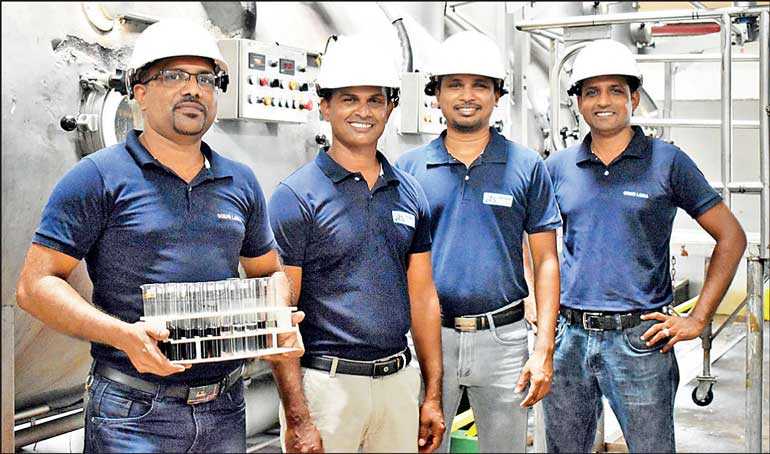Sunday Feb 22, 2026
Sunday Feb 22, 2026
Wednesday, 28 April 2021 00:00 - - {{hitsCtrl.values.hits}}

Ocean Aqua+ dyeing system project team
Ocean Lanka, Sri Lanka’s largest weft knitted fabric manufacturer, successfully implements ‘Ocean Aqua+’, a new indigenous dyeing system that revolutionises the fabric dyeing process, while helping to preserve the environment with a low level of demand on resources. The latest innovation, which is the brainchild of Ocean Lanka’s Dyeing and Colour Lab teams, has already had a significant impact on increasing the capacity utilisation and overall productivity.
Commenting on the game-changing technology, Ocean Lanka Managing Director Dr. Austin Au said, “There were times during the dry season, where we had to deploy water bowsers to carry out production in our dyeing plant. After evaluating our water consumption, we understood that the actual performance of multistage washing operations depends on the chemical system and optimising the washing process could conserve significant amounts of water and energy. This gave us a new impetus to kick-start the ‘Ocean Aqua+’ project in 2019. I’m overjoyed that the tireless efforts of our staff have finally borne fruit in the form of an eco-friendly and cost-saving dyeing process, especially for deep and vibrant coloured fabrics (e.g. black and scarlet red).”
The ‘Ocean Aqua+’ dyeing system shortens the fabric-dyeing phase, accelerating the process time by more than 30%. At the same time, it reduces energy consumption by 20% and the water requirement by 50 to 60%. By conserving water at the earliest stage, the traditional process of manufacturing textiles remains the same, as opposed to significant investment and cost for water free dyeing technology.
Senior Manager Dyeing and Finishing Sadun Nalaka added, “As a responsible corporate citizen, we believe that reducing water consumption in textile processing is important for furthering pollution prevention efforts, due in part because excess water use dilutes pollutants and adds to the effluent load. On the other hand, reducing wastewater also mitigates the need for expensive waste treatment systems.”